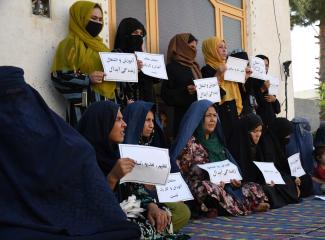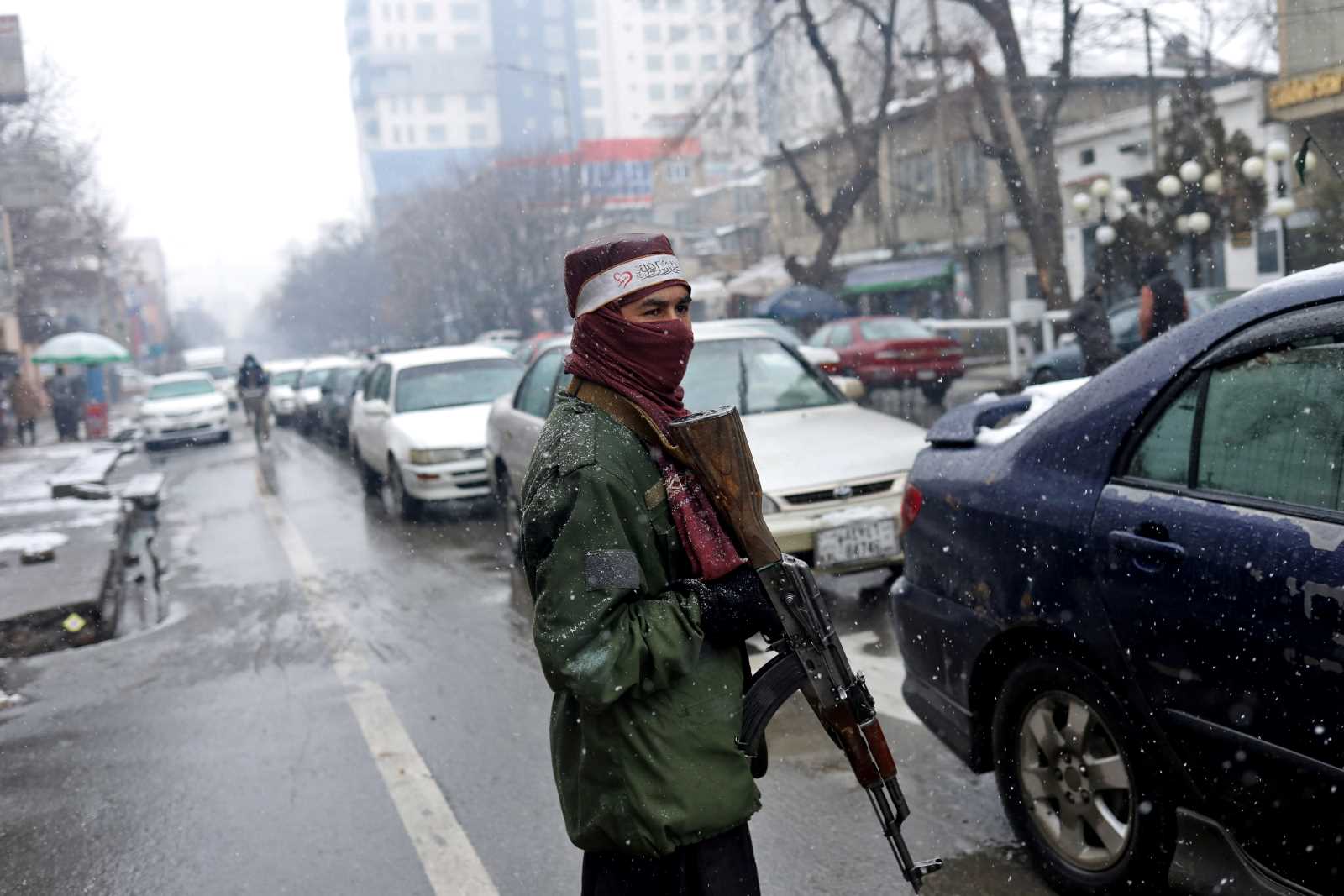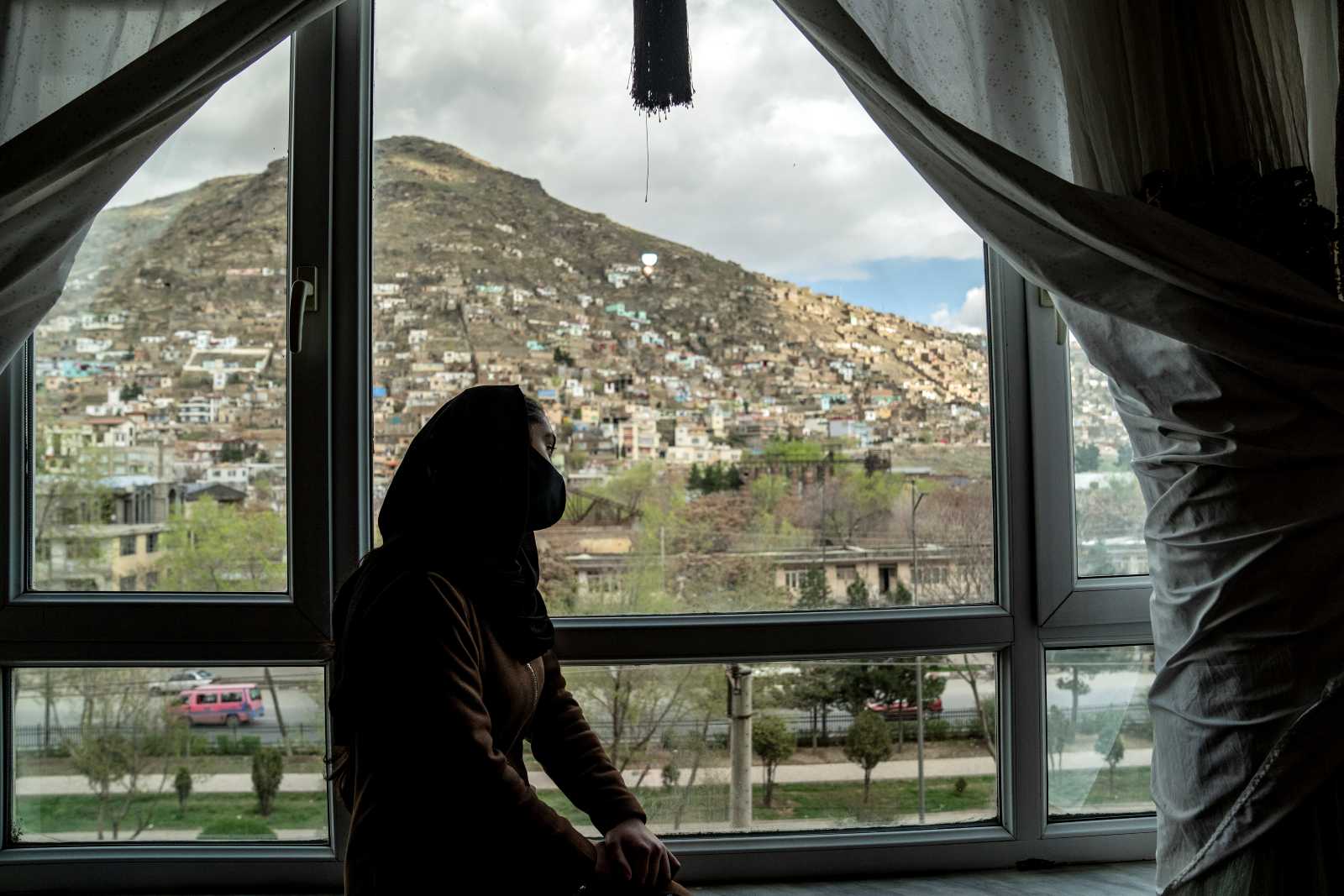Afghanistan
The Taliban’s second emirate

For two years now, the Taliban have once again controlled Afghanistan in the name of their “Islamic Emirate”. The US-led attempt to pacify and develop the country failed miserably.
Perspectives on this second emirate vary, however. Many see a return of the terror of the first Taliban emirate, which controlled the country between 1996 and 2001. International media are reporting numerous extrajudicial arrests and executions. They are affecting former local staff of foreign armed forces in particular.
Serious crimes and human-rights violations also took place during the first period of Taliban rule. Women, girls and ethnic and religious minorities suffered the most. These abuses were motivated by a grotesquely reductive mix of contemporary Islamic fundamentalism and the cult of leadership. Criticism was rejected and compromise was impossible.
Nowadays, however, many Afghans are expressing hope that the current Taliban government is not the same as it was before. It is true that the period immediately after the takeover was milder compared to the 1990s. In 1996, one of the first acts of the victorious Taliban was to torture to death the former president Najibullah and his brother and put their bodies on public display. Yet in August 2021, representatives of the defeated republic and the new rulers came together for discussions. Nothing came of them, however.
There are also differences in education policy. During the first Taliban regime, education of women and girls was practically non-existent. Now, girls may attend school up to the sixth form. However, as of the end of 2022, women are no longer allowed to attend university.
At first, women could continue to work for non-governmental organisations (NGOs). At the end of 2022, this was also forbidden by Taliban leader Haibatullah Akhundzada. But the Taliban have been moved to compromise on this issue to some extent; they tolerate female employment in hospitals, for example. As of June 2023, NGOs are no longer allowed to operate schools. In July, the Taliban also closed all beauty salons, which were the last place where Afghan women were allowed to work independently.
Repeated demonstrations
What is truly new is that affected people no longer accept repression without resistance. Since the Taliban seized power, there have been repeated demonstrations by women who frequently even show their faces – which is clearly forbidden, then as now.
The courageous women protesters are risking a great deal and their demonstrations are repeatedly broken up by force. During the first Taliban regime, however, such protests would have been completely unthinkable, since at the time, if women committed even the smallest legal violations, they risked severe penalties – including death – not only for themselves, but also their husbands.
Men have more freedom under the new rulers. They no longer completely adhere to their hairstyle and clothing regulations everywhere. At least in larger cities, there are still men who are clean-shaven or wear Western clothes. In addition, unlike in the past, the practice of team sports is largely tolerated, and prayer times are no longer rigorously enforced.
Furthermore, it has been observed that the Taliban now tolerate the representation of living beings in the media. Whereas in the past, there was a strict ban on the depiction of people, which even applied to animals to some extent, nowadays photographs and videos of people are ubiquitous, at least in news broadcasts and in the Taliban’s own propaganda. The former fighters are even happy to be repeatedly interviewed by Afghan women YouTubers.
There have been a variety of explanations for this in some ways more moderate behaviour of the Taliban with regard to the implementation of their rules in practice. In their current descriptions of themselves, they remain rather vague: “In terms of our ideology and beliefs, there is no difference. But when it comes to experience, maturity and vision, there’s a huge difference compared to 20 years ago,” Taliban spokesperson Zabihullah Mujahid said in his first press conference just days after the overthrow.
This transformation is plausible. In the aftermath of their defeat in 2001, the Taliban had to recognise that they had made themselves extremely unpopular. Moreover, globalisation has not stopped at Afghanistan’s borders, and the Taliban must come to terms with it.
Thousands of Taliban – particularly commanders – spent several months a year in Pakistan during the twenty years between the emirates. While Pakistan is also dominated by Islamic fundamentalism, girls’ education, a multi-party system and a passably functional judiciary exist in almost every part of the country. According to reports, more than a few commandants secretly enrolled their daughters in school in Pakistan. These experiences have evidently also influenced those in power.
At the same time, it is likely that a more moderate approach on the part of the Taliban leadership is part of their strategy. Many observers worry that the Taliban are using it to gain acceptance and aid money from the world’s rich nations, and that after this phase they could return to their old brutality. Indeed, it has been observed for instance that the Taliban are once again more strictly limiting women’s freedom of movement. Demonstrations do still occasionally occur, but they are more quickly and harshly broken up.
Ultimately it could also be that Afghan society itself has modernised and is forcing the Taliban to adapt. An entire generation has grown up with a relatively high degree of political freedom. It has also received a good education and, thanks to the efforts of national and international NGOs, has taken part in the emergence of a civil society.
This thesis seems to come closest to the truth. In 2021, the Taliban encountered a more self-confident, modern population that bravely defends its interests. While some Taliban representatives certainly appear more reflective today than in the past, it is becoming increasingly clear that new freedoms are not due to the Taliban’s magnanimity, but to people’s willingness to fight for them again and again.
This change is not a reason for optimism. Space for civil society is being severely restricted. The Taliban remain a totalitarian movement that glorifies violence with no lasting desire for reform. They also continue to commit the most serious human-rights violations.
Nevertheless, it can be said that even the Taliban are not immune to certain moderating influences. External actors should therefore be sure to do everything in their power to help Afghan society stay resilient.
Felix Kugele worked for an international humanitarian organisation in Afghanistan.
felixkugele@yahoo.com












